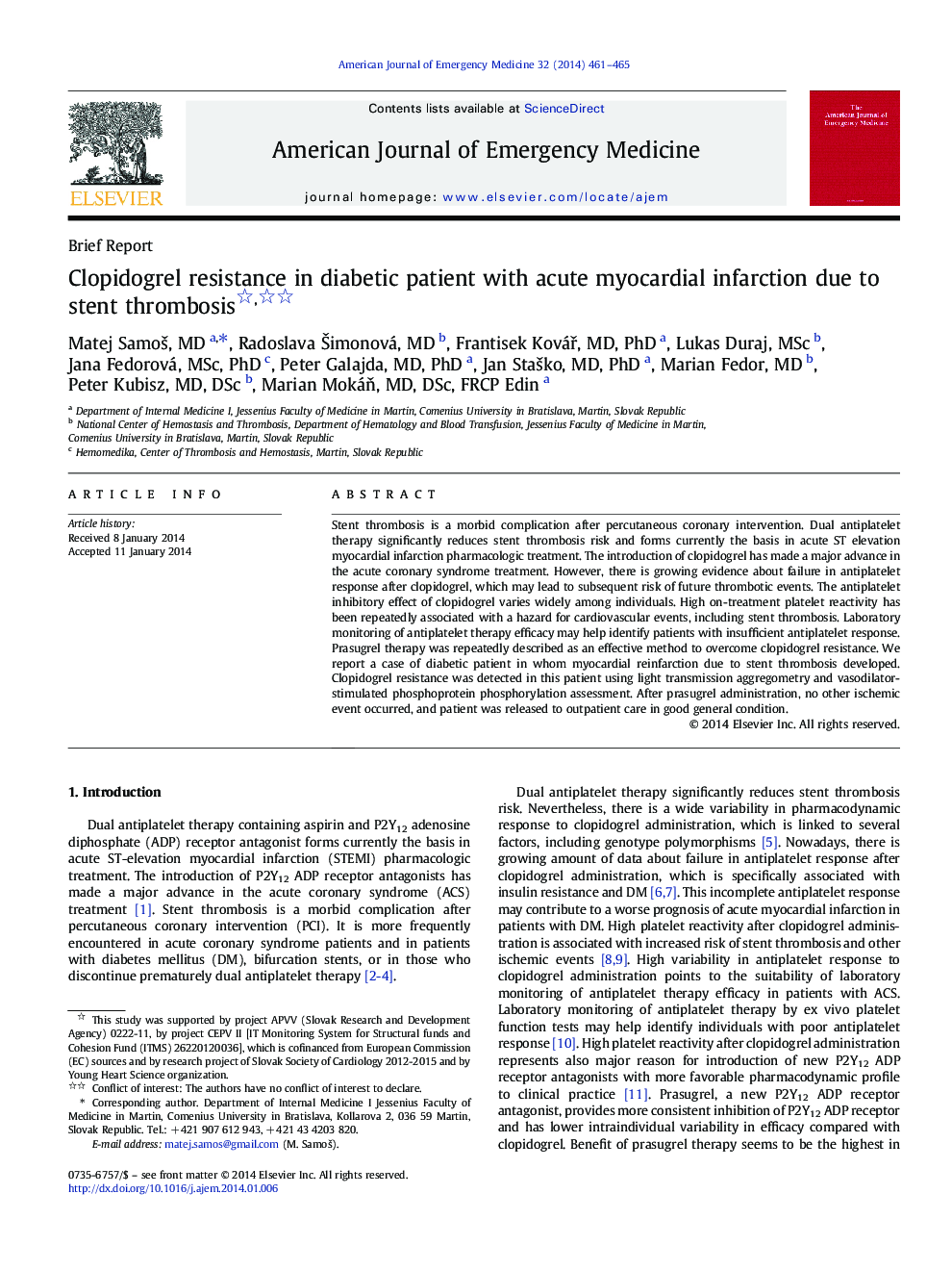| Article ID | Journal | Published Year | Pages | File Type |
|---|---|---|---|---|
| 3224553 | The American Journal of Emergency Medicine | 2014 | 5 Pages |
Stent thrombosis is a morbid complication after percutaneous coronary intervention. Dual antiplatelet therapy significantly reduces stent thrombosis risk and forms currently the basis in acute ST elevation myocardial infarction pharmacologic treatment. The introduction of clopidogrel has made a major advance in the acute coronary syndrome treatment. However, there is growing evidence about failure in antiplatelet response after clopidogrel, which may lead to subsequent risk of future thrombotic events. The antiplatelet inhibitory effect of clopidogrel varies widely among individuals. High on-treatment platelet reactivity has been repeatedly associated with a hazard for cardiovascular events, including stent thrombosis. Laboratory monitoring of antiplatelet therapy efficacy may help identify patients with insufficient antiplatelet response. Prasugrel therapy was repeatedly described as an effective method to overcome clopidogrel resistance. We report a case of diabetic patient in whom myocardial reinfarction due to stent thrombosis developed. Clopidogrel resistance was detected in this patient using light transmission aggregometry and vasodilator-stimulated phosphoprotein phosphorylation assessment. After prasugrel administration, no other ischemic event occurred, and patient was released to outpatient care in good general condition.
